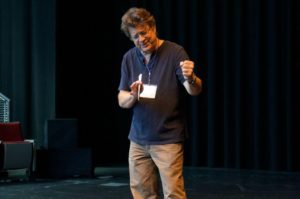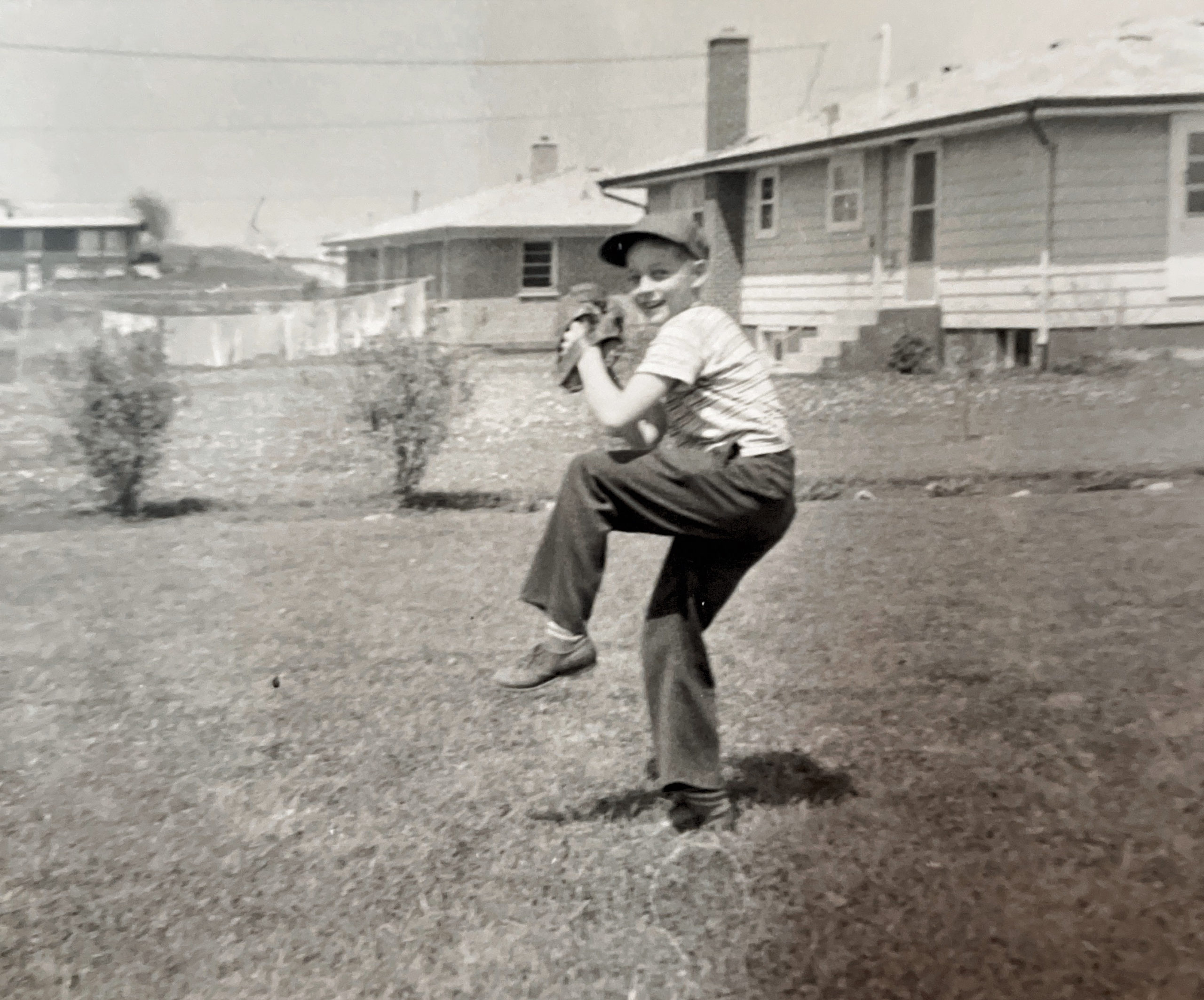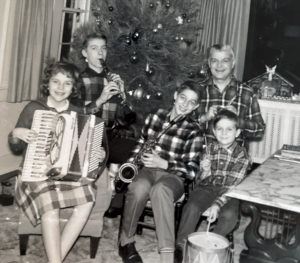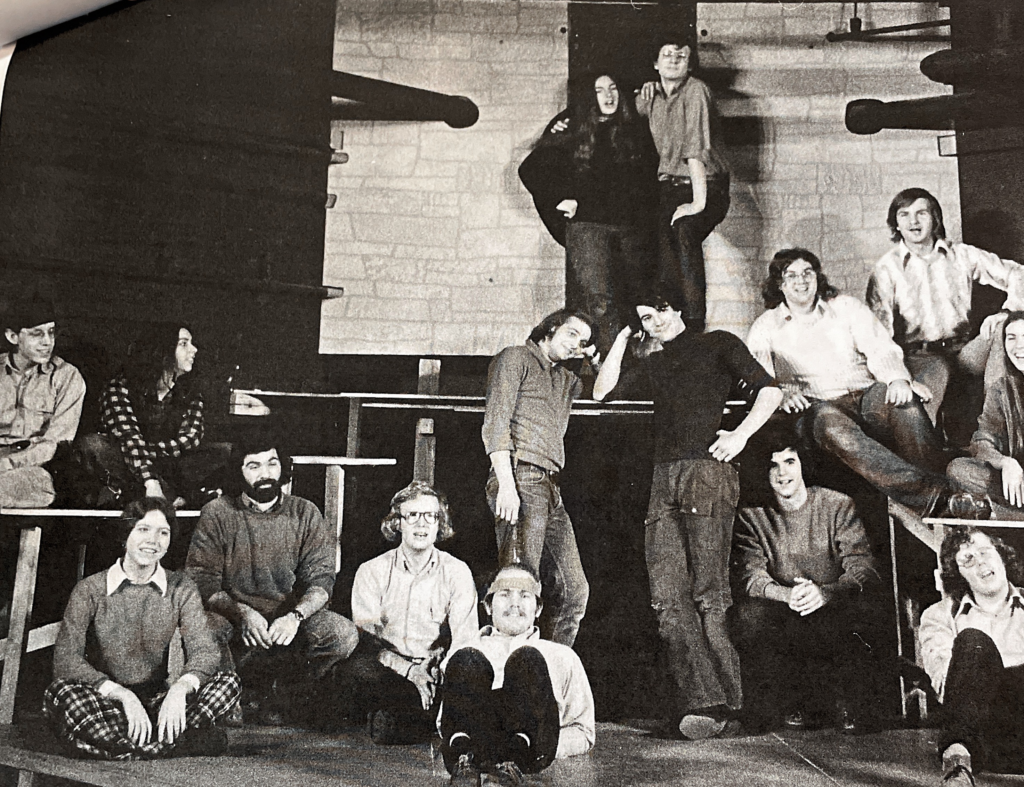My Path to Teaching Actors
Those Who Can, Do
And those who can’t, teach….My guess is that you’ve heard this provocative quote from George Bernard Shaw’s play, Man and Superman. It’s a sentiment that has rankled teachers for over a century. I’ve always viewed it as a Shavian challenge to stay present in the professional world, teach from that perspective, and invite student actors to apply their university training in practical, creative ways to meet the demands of the theatrical world they intend to join. As I begin this journey, this reflective memoir, I asked myself two questions: Why am I doing this legacy project and who am I doing it for? In order to hunt for answers to those questions, I first have to figure out: Why I’ve been teaching actors for over 35 years? What were/are my influences? What have I learned that I thought I could pass along.
THE QUESTION
I’m in a typical classroom nervously enduring an onsite interview for my first university teaching job. A faculty member enters and sits down across the seminar table from me and doesn’t say a word, doesn’t look at me for thirty seconds. Finally he looks up and says, “So what makes you think you can teach acting?” I stammered an inarticulate reply and left that day thinking I lost the gig. Thirty years later I retired as a full professor from that institution. I guess I said something right. At the time, the question was overwhelming. I left that meeting angry and confused. Today I believe it’s an excellent inquiry. What made me think I could teach actors? Here’s my answer to that question.
FAMILY
Theater wasn’t a significant feature in my life for the first 20 years or so. I wanted to be a shortstop when I grew up and play for the Chicago White Sox. My heroes were Luis Aparicio and Nellie Fox, the Sox shortstop and second baseman in the late 50’s – early 60s. I would listen to the games on my cherished transistor radio, sometimes late at night, earplugs installed, and under the covers so Mom would think I was asleep. My dad worked for IBM. In the 1950s, IBM moved its employees much like a military family so I had a new home, a new school and new friends about every two years. This meant I had to follow my beloved Sox team by reading the box scores in the newspaper as we moved from Glen Ellyn, Illinois to Manhattan to Stamford, Connecticut. I think it was also a major contributing factor in why my family became close, self-sufficient and rather insular. Why make close friends and fall in love with a house/neighborhood if you were going to move in two years? Family was all that was needed for love, fun and security.

Those early days were also full of happy memories of reading, storytelling and music. My Mom was a poet and an exceptional teacher. She loved words and was a wonderful storyteller. She made sure we had music lessons at a very early age. I was introduced to the violin in first grade. My first public performance was a violin duet with my older brother, David. Our selection was a rendition of Mary Had a Little Lamb, played at a very slow tempo with lots of bow screeching and scraping. When we got a bit older Mom and Dad requested a command concert performance every Sunday afternoon. By that time, My bro and I decided that the violin wasn’t our  instrument of choice. He took up the clarinet and I enthusiastically tackled the saxophone. My sister, Marie, joined the band with her accordion. Younger brother, Paul, set the beat on the drums. I’ve many fond memories of my parents dancing in the living room as we serenaded them.
instrument of choice. He took up the clarinet and I enthusiastically tackled the saxophone. My sister, Marie, joined the band with her accordion. Younger brother, Paul, set the beat on the drums. I’ve many fond memories of my parents dancing in the living room as we serenaded them.
Dad was a quiet, commanding presence in my life. He was a pioneer in the small computer evolution for IBM. He was also an amazing athlete. Dad had an intuitive sense how machines worked. He could fix cars, outboard engines, washing machines, lamps, toys. If something broke, he would fix it and I would be at his side. I think I acquired my life-long interest in spatial problem solving from him. This helped me to appreciate a designer’s work and was the foundation for my ability to stage plays. Dad died of cancer when I was 16 so I never really got a chance to know him. Our happy, middle class life together was shattered. Mom went into deep mourning. We all were at sea during those years, drifting, not knowing what direction to take, what to pursue. I entered Providence College with the desperate, forlorn aspiration to become a research doctor who would discover a cure for the disease that took my Dad.
So my early teacher’s alchemy were gifts from my family:
- a love of words, music and storytelling
- the fun challenge of physical problem solving.
- supporting each other in times of joy and grief.
FRIENDS
One Friday on a chilly, dreary fall day I was attempting to complete a project in the lab for my Genetics class. It was the famous Chromosome Fruit Fly experiment. The object was to trace genetic trends by determining how many male vs. female flies existed over a number of generations. You achieved this by gently anesthetizing a population of flies with ether, placing them under a microscope, counting each sleeping fly and recording the numbers. You had to work quickly because the flies would slowly wake and buzz about really screwing up the count. So I was happily counting away when it occurred to me that a lot of time had passed and no fly was moving. My next thought was, “Oh no, no, no…I’ve killed them all!” Fruit Fly Genome Genocide. And that’s exactly what I had done. This meant I would have to start the project all over again from the beginning in order to honestly and accurately report my results. I was angry and miserable.
In that mood I stomped out of the lab into the chilly Providence evening. With no appetite at all for the cafeteria mystery meat that would be served, I headed for my dorm room. Now every single day that I made the way to my room I had taken the left path around St. Joseph’s Hall. For some reason on that night, without really thinking, I found my way around that Hall on the path on the right side of the building. A placard stood In front of a basement entrance that read, “Auditions tonight for Mice and Men, The Friar’s Cell.” I passed the sign and for some reason I stopped and turned to look at it again. At that moment, a guy popped his head out from the basement door and said’ “You here for the auditions?” I stammered something meaningless and turned to go. Next thing I knew he was at my side. He grabbed my arm, ushered me into the basement, handed me a small book and said, something like, “It’s easy. All you do is read these sentences”. He then pushed me onto a small platform. A voice from the dark encouraged me to begin. I don’t recall much after that. Later that evening I got a call on the dorm phone. I had been cast as Curley in the Theater Club’s production of Steinbeck’s Of Mice and Men. And my acting journey began.
I had found my undergraduate artistic home that day. Life long friends – John, Bob, Vinnie, Jimmy, Chris, Debbie, Bill, Alex, Leo. A teacher who cared, Lynn Rae Slavin. Lynn was my first mentor. She was an energetic, passionate artist. She gave me a little book, Richard Boleslavski’s Acting: The First Six Lessons. It became my bible. Her class exercises opened up a whole new world for me. She was instrumental in my acceptance into the MFA Acting Program at Catholic University in 1973

